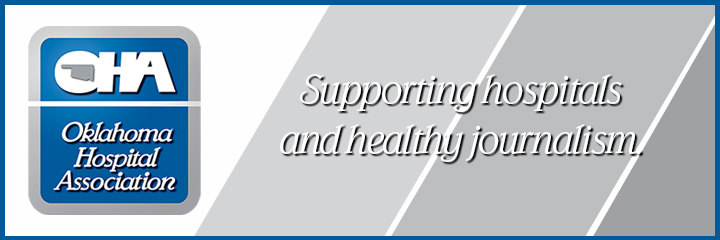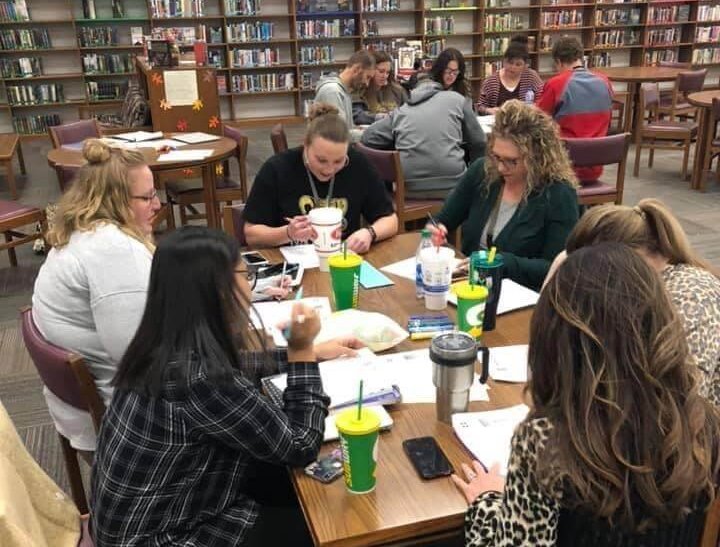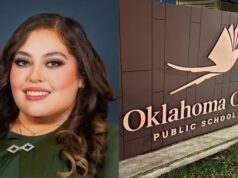
On the first day of summer school for Okmulgee Public Schools, high school principal LuVona Copeland noticed multiple students exhibiting signs of anxiety. On day two, a few more students were showing signs.
“I’m very concerned,” Copeland said. “I think it’s getting back to being in a routine, getting back to being around other people because those kids were not in school all year long, they were virtual. There’s just not enough help where we are to handle everything on a regular basis, and I know in the fall it’s going to be bad.”
State education leaders agree.
As part of its Ready Together Oklahoma initiative aimed at supporting students throughout the pandemic and beyond, the State Department of Education is investing $35 million into a School Counselor Corps, which will fund 50 percent of the cost of new licensed counselor positions at public schools.
“Schools [have been] starting to understand about trauma, what the statistics are in our state and the assistance students may need,” said Shelly Ellis, deputy state superintendent of student support. “I believe this is part of the next step to what we can do to help assist students.”
Even before the pandemic, Copeland worried about the mental health of the young people in her eastern Oklahoma district.
“We had a great need before because of the demographics of our population,” she said. “We have very high poverty, 100 percent of our kids eat free at school — lots of single-parent homes, a lot of kids who are living with grandparents and great-grandparents. We had a great need to begin with, but probably about October we had kids starting to reach out to us.”
Copeland said students began reaching out to her and their teachers to express the difficulties they were having coping with the pandemic and getting school work done.
“I’ve had kids that tell me they wake up and just lay there and they can’t get themselves going,” she said. “They might not use the word ‘depression,’ but that’s exactly what they’re describing.”
Copeland said socially-distanced visits made by district staff to the homes of students who stopped participating in school virtually revealed more concerns.
“I started having parents tell me, ‘You don’t understand, COVID is a blessing for our family. He’s going to be able to work a full shift out at Walmart, and we’re going to be able to keep the gas on,'” Copeland recalled. “There’s a lot of layers to this that I didn’t anticipate. If you’re 16 or 17 years old and it’s on you to pay the gas bill, you’re going to do that before you do your school work. But that absolutely affects them, and here we are trying to reel them back in.”
About five years ago, Copeland said Okmulgee Public Schools started the approach of focusing on the “whole” student, including their mental health and emotional well-being. The district was able to hire a therapeutic counselor in 2019 to handle crisis management, among other duties, at school sites district wide. Still, one mental health professional is not enough.
“[Our counselor] says there needs to be about three of her on the high school campus alone,” Copeland said. “As principals, administrators and teachers, there’s a lot we aren’t trained for. Yes, we can do some hugging and loving and tough loving and all of that, but there are things we’re simply not trained for.”
Copeland said at the high school, there are a lot of outbursts from students who lack coping mechanisms. She recalls a student coming into her office four years ago and crying for 45 minutes straight, unable to verbalize what was wrong.
“I quickly deduced there’s something bigger here than I can deal with,” Copeland said. “My hugging and loving isn’t going to help this — there’s something really wrong here.”
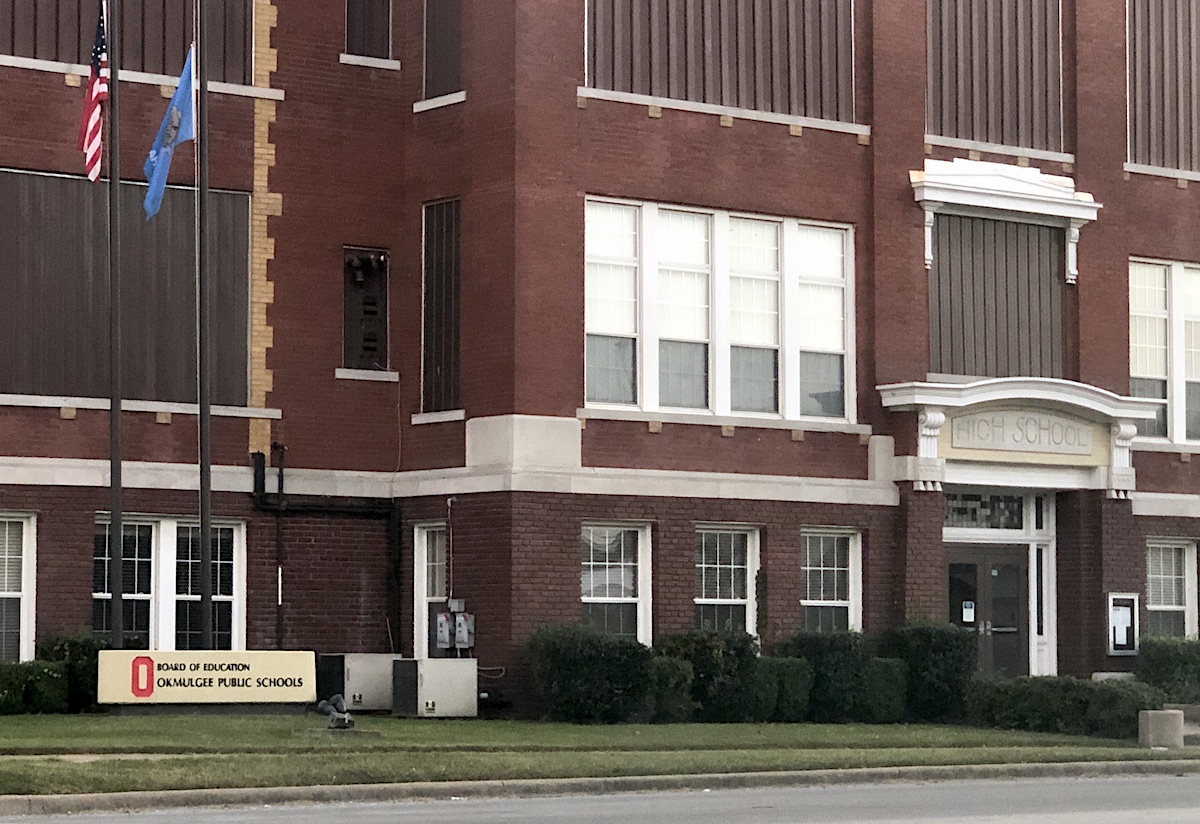
‘There’s just a lot of suffering’
The state’s portion of the new School Counselor Corps program will be funded by federal Elementary and Secondary School Emergency Relief funds.
“Oklahoma schools have long needed more school counselors, and that need is more urgent than ever in the wake of this pandemic,” State Superintendent of Public Instruction Joy Hofmeister said in a May announcement. “We have made progress in reducing the student-to-school counselor ratio over the past few years, but this initiative marks a dramatic improvement. We are making our single largest investment of COVID emergency relief funding in the Counselor Corps because we know its impact will benefit students in every corner of our state.”
According to the State Department of Education, Oklahoma’s current student-to-school counselor ratio is 411:1, a ways off from the American School Counselor Association’s recommendation of 250:1.
The competitive School Counselor Corps grant will fund about 50 percent of the cost of the salary and benefits of a qualified position. Those positions include school counselors, licensed professional counselors, licensed alcohol and drug counselors, school psychologists, licensed marriage and family therapists, licensed clinical social workers and licensed recreational therapists. The grant would support recipient school districts through the 2023-2024 school year.
Ellis, the deputy superintendent of student support, said 181 school districts have applied for the School Counselor Corps grant. The application period closed June 11.
“Once there was an opportunity for additional funding via ESSR and the American Rescue Plan, Superintendent Hofmeister decided we would invest that into the School Counselor Corps to meet the varied needs of all of our students,” Ellis said. “COVID- 19 kind of shined a light on those needs. Superintendent Hofmeister has led the trauma informed education conversation for the past four years with multiple trauma informed conferences.”
Ellis said a common thread in multiple roundtable discussions with superintendent, student and teacher advisory groups was concern about the social-emotional well-being of students, which helped identify the need for the School Counselor Corps.
If awarded the grant, Copeland said she hopes Okmulgee Public Schools will be able to place a therapeutic counselor at each of the district’s school sites.
“Kids are suffering. There’s just a lot of suffering. I’m so thankful for the childhood that I had, and these kids don’t have that childhood. They don’t have the coping skills to deal with the things that do come from having the childhood they live in,” Copeland said. “Having someone to talk that through with and validate your feelings can help you realize that you can change the way you think about things and how you deal with your surroundings.”
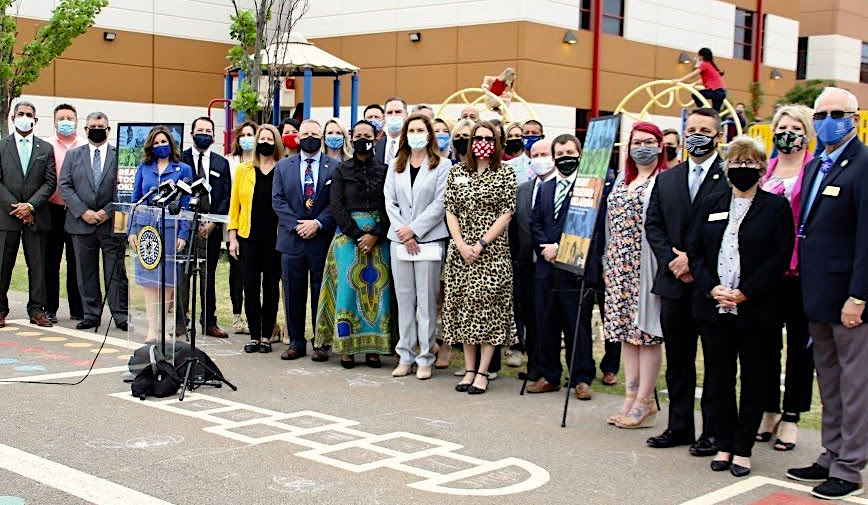
‘We are considered a mental health desert’
Atoka Public Schools currently utilizes the State Department of Education’s Project AWARE grant, a five-year funding stream totaling about $9 million to develop more integrated mental health supports for students and families in school districts.
Atoka Schools Project AWARE community manager Michelle Allen said Project AWARE has enabled the district to hire a full-time therapist for students. The therapist is able to meet with those who have the greatest need for resources and either offer services within the school or refer students out for more intensive services.
Allen said she received 43 student referrals for mental health services from staff members last semester.
RELATED
Project AWARE helps meet student mental health needs by Megan Prather
“When we began the journey with Project AWARE in January, we began fitting the AWARE framework into our district. It revealed that we lacked in our capabilities to provide enough student support in several ways,” Allen said. “The addition of the mental health therapist allows for students needing the most support to have an advocate and links to services. The school district is also making plans to add additional social, emotional and character-building strategies at each site, as well as providing training for teachers to add to their own toolbox of skills in this area.”
However, Allen said many students, who may just need additional skills to manage emotions or difficult situations in their lives, are left in the middle, which prompted the district also to apply for the School Counselor Corps grant.
“We knew the important role of an additional school counselor would be able to help meet this need,” Allen said. “Time-on-task, feet-on-the-ground moments alongside students will be essential to meeting the needs of these students to teach coping skills and build protective factors into their lives to manage difficult life situations in healthy ways.”
Allen said limited resources in rural areas, like Atoka, are continuous issues for students.
“In our area of the state in particular, we are considered a ‘mental health desert,’ which made us a good candidate for Project AWARE,” Allen said. “It is difficult to find outside resources, such as licensed therapists and counselors that have the capacity to be able to see new clients.”
Allen said rural areas also often lack protective factors within the community, such as youth clubs and centers.
“The importance of student support within the school is essential for students to have positive outlets for growth, wellness and healthy relationships,” Allen said.
Allen also emphasized the importance of relationships and connections between children and the adults in their lives, whether it’s a conversation with a grandparent on the porch or a librarian looking out for students who head to the library alone after school.
“When we as adults realize the actual impact of intentional connections with children and youth, we have the capabilities of creating a strong support system for them,” Allen said. “These relationships with caring, connected adults can be a support and a gap-filler to help them through struggles they may encounter in their own journey to adulthood. Interconnectedness is key.”
School Counselor Corps awards announced
On Wednesday, two days after the publication of this article, the Oklahoma State Department of Education announced the 181 school districts that will be receiving the School Counselor Corps grants.
Okmulgee Public Schools will receive $252,000 from the grant to strengthen mental health services for students, with Atoka Public Schools receiving $96,000.
According to a press release from the OSDE, school districts have requested 222 school counselors, 36 licensed social workers, 54 licensed mental health professionals, four recreational therapists and 42 contracted services. The OSDE will also hire five regional positions to support the counselor corps with training and professional development.
The two largest allocations from this grant will go to Broken Arrow Public Schools, which will receive about $1.62 million, and Oklahoma City Public Schools, which will receive about $1.3 million.
Tulsa Public Schools will also receive about $1.3 million and McAlester Public Schools will receive about $1.04 million from the grant.
(Update: This article was updated at 12:40 p.m. Wednesday, June 30, to include the school districts awarded the grant.)

